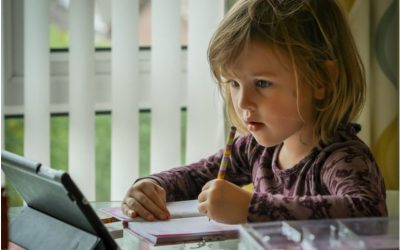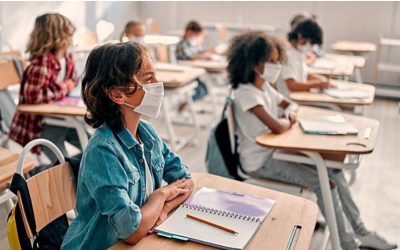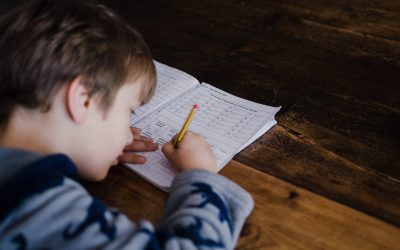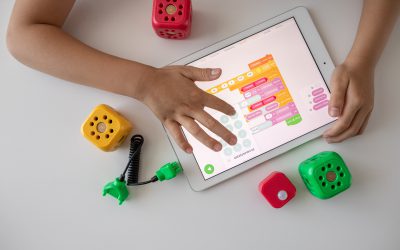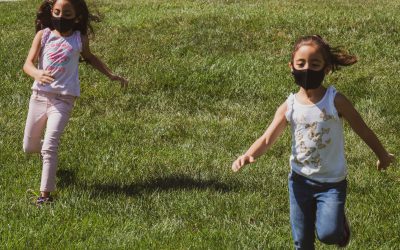Homeschooling during the COVID-19 pandemic: Parental experiences, risk and resilience
1 Apr 2021 | Parents, Professionals, Teachers
Lockdown measures and school closures due to the COVID-19 pandemic meant that families with school-aged children had to adapt to a new situation: Suddenly, the home became the center for work, schooling, learning, play and spending time together as a family (Hale, Webster, Petherick, Phillips, & Kira, 2020). More than a year after the first lockdown, for many families in the Netherlands homeschooling is still a part of life, with individual children or whole school classes being sent into quarantine on a regular basis. Clearly, each family has their unique way of coping with these unusual consequences and potential consequences for the continuity of children’s educational development as well as family functioning and wellbeing may also differ from family to family (Blundell, Costa Dias, Joyce, & Xu, 2020).
Marina Iliás,
Anne Tharner,
Marleen de Moor,
Carlo Schuengel & Mirjam Oosterman
01.04.2021
Center for Clinical Child and Family Studies, Vrije Universiteit Amsterdam
e-mail: a.tharner@vu.nl





Studying adaptation to homeschooling through a resilience framework lens
With the support of the LEARN! Research Institute, we set up a study within an ongoing longitudinal cohort (Generaties2) to gain insights into parents’ experiences with homeschooling during the COVID-19 pandemic. We examined how families adapt to the new situation, how they cope with potential risks or even create positive new experiences. Participants were 543 parents (403 mothers and 140 partners currently living in the family home) of school-aged children between 5.5 and 11 years old. Participants were mostly from the Amsterdam area in the Netherlands, and have joined the study since pregnancy. Following are some highlights from our ongoing analyses, which still have to be reviewed by independent scientists.
How did families organize and experience homeschooling during the COVID-19 pandemic?
Parents reported that on average children spent almost 4 hours per day in “home school” with parents being involved about 75% of the time, about 3 hours in total. Some families spent as much as 7 hours per day on homeschooling. Parents’ experiences of homeschooling were very mixed: some parents graded their experience a “1” (very poor) and others gave it a “10” (excellent). On average, experiences leaned towards the positive. While some parents found homeschooling not at all stressful, it was extremely stressful for others. However, most parents indicated that for them homeschooling was mostly a gratifying experience. A narrow majority of parents indicated that their child preferred going to school (56.7%), but there was also a sizable group of children who preferred homeschooling (23.8%). Children’s motivation for homeschooling varied widely, but on average parents reported relatively high motivation.
Risk factors
For some families, adapting to forced homeschooling was more difficult than for others. Parents with vocational education reported somewhat lower confidence in their own knowledge and skills than parents with higher vocational or academic education. Parents working (close to) full time reported relatively less often than part time working parents that they were available to their children. Finally, parents with more children also spent more time on homeschooling. These situational challenges were quite expectable. Overall, potential demographic risk factors explained very little variation in parents’ homeschooling experience.
Resilience factors
Much more revealing was parents’ involvement in children’s learning prior to the COVID-19 pandemic. More specifically, parents’ playful support of learning, support of autonomy in learning and a positive learning environment at home before the pandemic predicted which parents were most likely to feel capable of providing support and managing homeschooling during the pandemic. Parental confidence in their ability to support their child learning at school before the pandemic predicted also their resilience during the pandemic: Their confidence persisted into the pandemic and the new homeschooling situation.
What we can learn from resilient families: Parents’ involvement in children’s learning facilitates adaptation to homeschooling
In conclusion, we found large differences in how families experienced homeschooling during the COVID-19 pandemic. While some demographic groups may have had more difficulty with adapting than others, our findings suggest that parents’ experiences with supporting children’s learning prior to the pandemic were more important for resilience and adaptation to homeschooling than demographic risk. Families who were already more involved in their children’s learning before the pandemic, had more positive homeschooling experiences during the pandemic.
References
Blundell, R., Costa Dias, M., Joyce, R., & Xu, X. (2020). COVID‐19 and Inequalities. Fiscal
Studies, 41(2), 291-319. https://doi.org/10.1111/1475-5890.12232
Hale, T., Webster, S., Petherick, A., Phillips, T., & Kira, B. (2020). The Oxford COVID-19
Government Response Tracker. Retrieved from https://www.bsg.ox.ac.uk/research/research-projects/covid-19-government-response-tracker
See also information for:
Most recent blogs:
How LEARN! supports primary and secondary schools in mapping social-emotional functioning and well-being for the school scan of the National Education Program
Jun 28, 2021
Extra support, catch-up programmes, learning delays, these have now become common terms in...
Conference ‘Increasing educational opportunities in the wake of Covid-19’
Jun 21, 2021
Covid-19 has an enormous impact on education. This has led to an increased interest in how recent...
Educational opportunities in the wake of COVID-19: webinars now available on Youtube
Jun 17, 2021
On the 9th of June LEARN! and Educationlab organized an online conference about...
Catch-up and support programmes in primary and secondary education
Mar 1, 2021
The Ministry of Education, Culture and Science (OCW) provides funding in three application rounds...
Home education with adaptive practice software: gains instead of losses?
Jan 26, 2021
As schools all over Europe remain shuttered for the second time this winter because of the Covid...
A COVID-generation: who are the winners and losers of a disrupted school year? Reflections from the Netherlands.
Dec 22, 2020
In this blog, Melanie Ehren, Martijn Meeter and Anne Fleur Kortekaas look at which students are...

